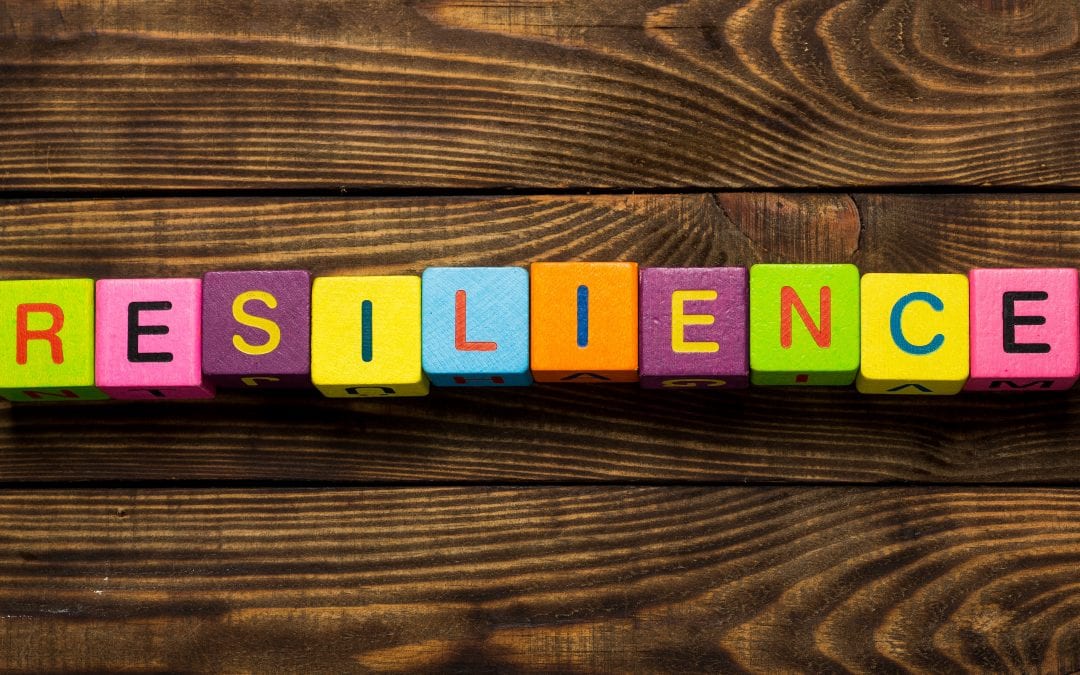Resilience, mental health and the workplace

For those that pay any notice to my rantings (high five to you three...), I do keep harping on about 'soft skills', but that is because I am reminded every day how important they are. Having read a few articles, I came across a piece by Matthew Kerr (June 2019) that said, “A deciding factor for 72% of CEOs surveyed cited soft skills of more importance than hard skills.”
What’s the difference? “Hard skills are teachable and measurable abilities, such as writing, reading, math or ability to use computer programs. By contrast, soft skills are the traits that make you a good employee, such as etiquette, communication and listening, getting along with other people” (Tom Gerencer, CPRW).
The soft skills employers sought included communication, problem solving, creative thinking, teamwork, analytical thinking, adaptability and RESILIENCE. Resilience (as said by a majority of employers) "is an essential quality for young people to possess – the ability to cope with setbacks, and criticism to be motivated to overcome obstacles."
Firstly, being resilient does not mean that a person does not experience difficulties or feel distress. Resilient people are not feeling trauma or stress any less than others; they are just able to cope or bounce back in a way that allows them to carry on.
Resilience: “When faced with a tragedy, natural disaster, health concern, relationship, work, or school problem, resilience is how well a person can adapt to the events in their life. A person with good resilience has the ability to bounce back more quickly and with less stress than someone whose resilience is less developed.”
As the world of jobs and career paths is changing and will continue to change, we have to be flexible, adaptable, and willing to upskill; we have to be resilient.
Yet, as resilience is being described as ‘an essential quality for young people to possess,’ there has been a significant decline in resilience in young people over the years. Mental health issues in teens have increased. Lack of resilience is coupled with in an increase in mental health issues... mental health issues, such as anxiety and depression, result in declining resilience, and so the vicious circle goes on...
Studies are showing that in general, young people are more anxious and more sensitive than previous generations. Why is that? I had read in a recent article (US) that 85% of university counsellors reported an increase in the number of students taking prescribed medication for anxiety and depression. Changes in parenting methods (curling, anyone?) and screen time (social media/media/gaming) have been named as the main culprits, but this also stems from schooling/education where everyone is a winner, no one ever fails.
RESILIENCE - IT IS OK TO FAIL!
"Do not judge me by my successes, judge me by how many times I fell down and got back up again." ― Nelson Mandela
"I've missed more than 9000 shots in my career. I've lost almost 300 games. 26 times, I've been trusted to take the game-winning shot and missed. I've failed over and over and over again in my life. And that is why I succeed." ― Michael Jordan
Thomas Edison is by far one of the most famous inventors in history and holds 1 093 patents to his name, however, when attempting to invent a commercially viable electric lightbulb, he failed over 10 000 times. When asked by a reporter how it felt to fail so many times, he merely stated, “I have not failed 10 000 times. I have not failed once. I have succeeded in proving that those 10 000 ways will not work. When I have eliminated the ways that will not work, I will find the way that will work.”
Walt Disney was fired from his first animation job because he “lacked imagination and had no good ideas.”
J.K. Rowling had anything but a smooth ride; by the time she had finished the first of the Harry Potter books she was divorced, on welfare with a child to support, and all 12 major publishers rejected the Harry Potter manuscript.
Of course it is important that we should praise and encourage children - but they also need to know that they can fail and yes, that it is OK to FAIL.
Resilience - Understanding life is not all sunshine and roses, not ALL of the time. Understanding that there will be plenty of difficult/frustrating and hard times, but that they will pass. There are plenty of other emotions we will enjoy or suffer our whole life and they all pass - feelings of anger pass, feelings of anxiety pass, feelings of sadness pass.
So if the statistics are correct, that at the same time as there is a decline in resilience, there is an increase in mental health issues - then we as parents/teachers/carers need to seriously up our game. As much as everyone wants to protect their children, doing everything for them, solving all their problems, doing all their remembering for them (dropping off a forgotten PE kit), we also have to remember that these children need to grow up to be happy adults. To raise happy, healthy adults we need to let children take on and deal with the ups and downs of life, let them lose, let them figure it out, let them fail, let them take risks, let them be bored in order to be creative, when they get knocked back, urge them to keep on going, after all, not many of us mastered walking, riding a bike or using a spoon the first time around!
Interesting reads:
https://www.inc.com/amy-morin/10-reasons-american-teenagers-are-more-anxious-than-ever.html
